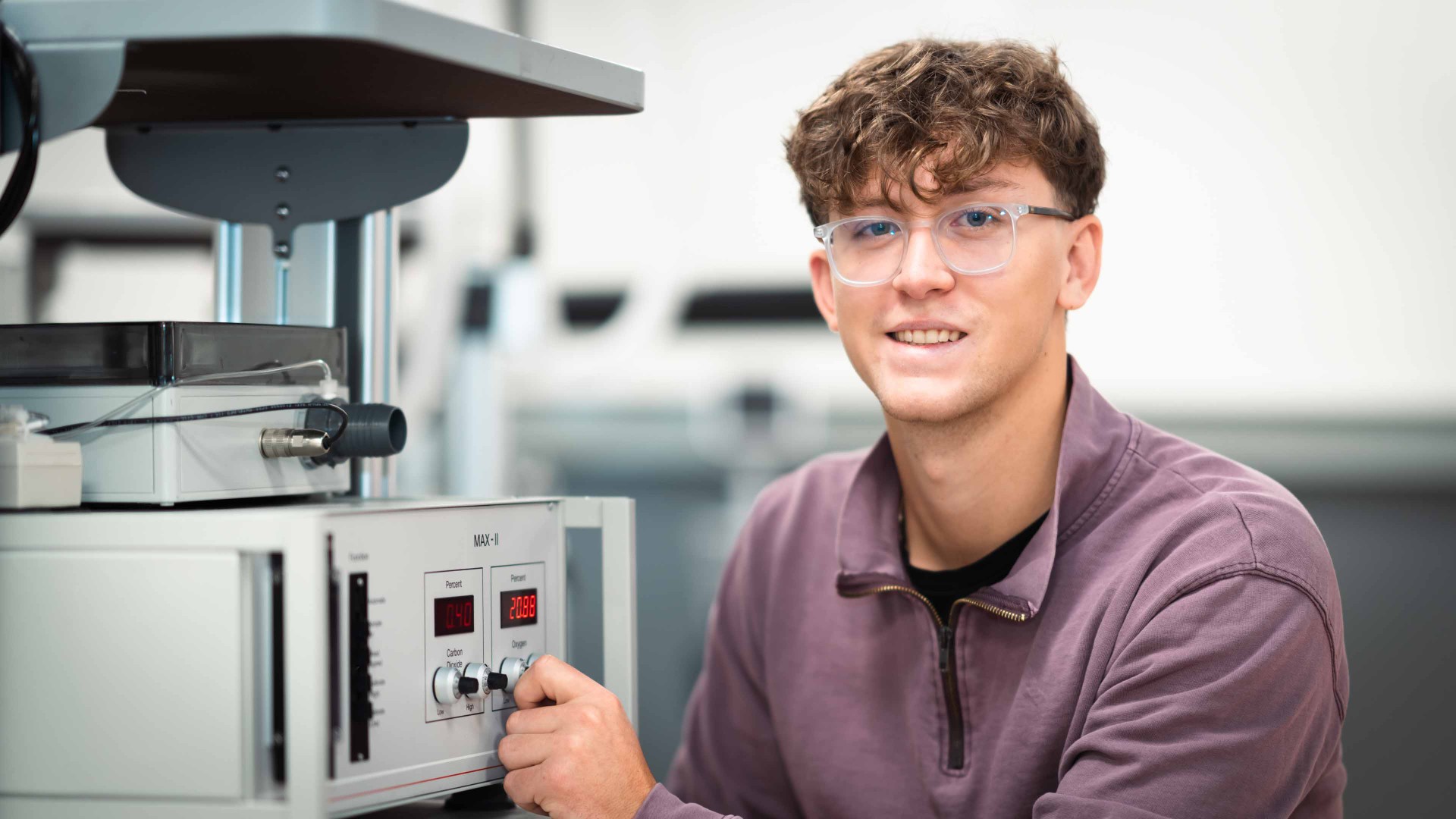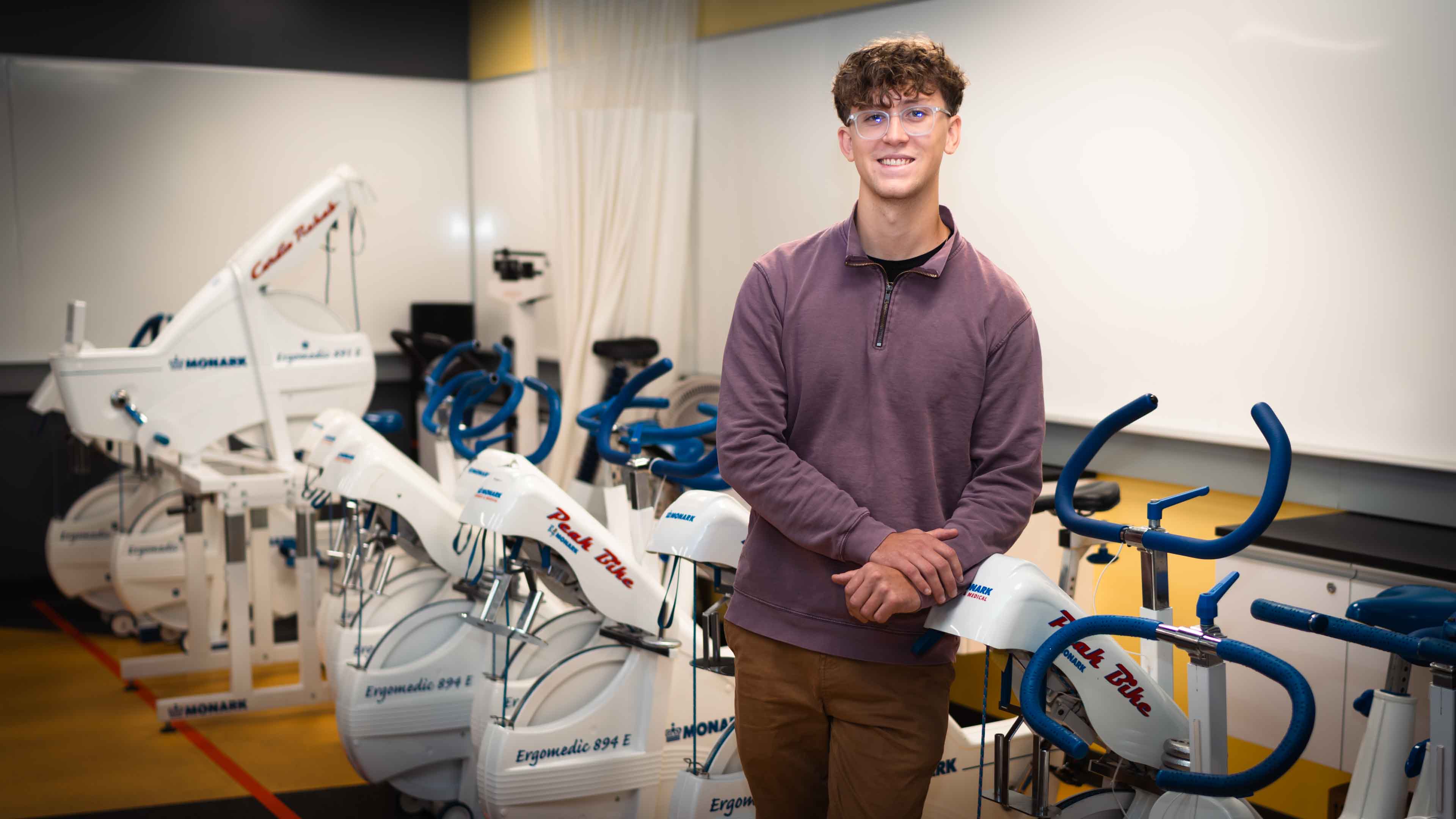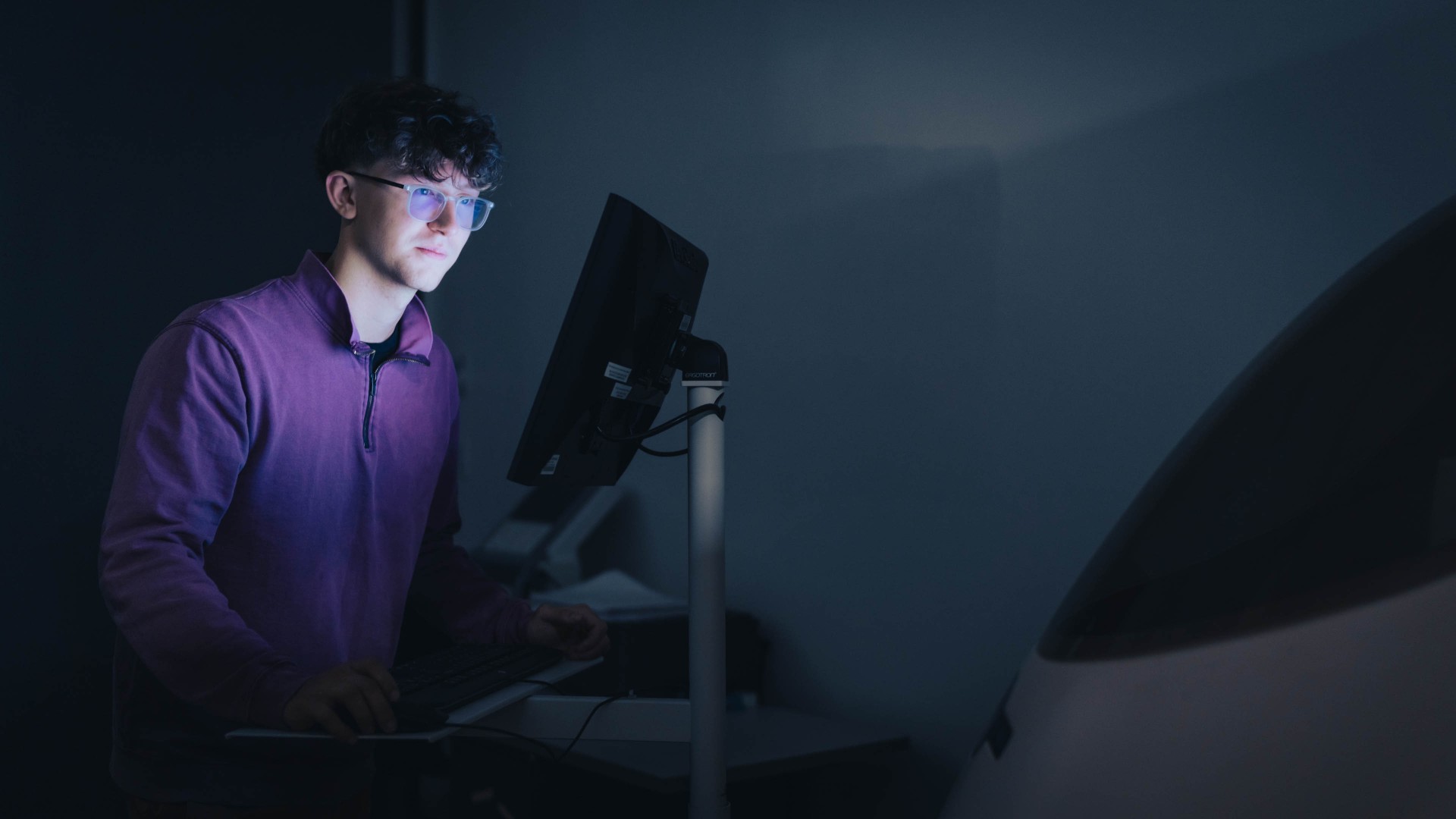
Fourth-year Kinesiology student Nicolas Cyr dreams of becoming a physician assistant. But it’s not just what he’s learning during lectures at the University of Guelph-Humber (U of GH) that is preparing him to achieve this goal (though that’s an important component) – it’s also what he’s doing outside the lecture hall.
Cyr is a laboratory technician assistant at U of GH/Humber Polytechnic, which is a key role in keeping the labs running smoothly for classes. Additionally, he conducts research with Dr. Philip Millar at the University of Guelph within the Human Cardiovascular Physiology Lab.
Here is what he had to say about these invigorating and door-opening opportunities:
Q: You’re a laboratory technician assistant for the labs at the University of Guelph-Humber and Humber Polytechnic. Please tell us about what you do in this position.
A: As a laboratory technician assistant, I help prepare and organize the lab, mainly for Guelph-Humber Kinesiology classes, but I also assist with some Humber classes. This includes setting up exercise physiology equipment such as metabolic carts, treadmills, and dynamometers, as well as assisting with the use and data collection during the labs. I ensure the equipment is maintained and calibrated so that students have a reliable and hands-on experience.
Q: What’s your favourite part about being a lab technician assistant, and why?
A: As a former student in many of these courses, it’s important to me that I help provide the same great hands-on learning experience that I had. Ensuring that everything runs smoothly and troubleshooting when something doesn’t work are aspects of the job I really enjoy. I also love that by helping in the labs, I’ve become very familiar with the equipment and its maintenance, which has been a valuable learning experience. Connecting the theoretical concepts that we learn in lecture to real physiological testing and helping students understand and apply these ideas is my favourite part of the role.
Q: What’s the greatest challenge that you’ve encountered in this role, and how did you overcome it?
A: One challenge at the beginning was balancing the workload of assisting multiple labs throughout the week alongside my regular course load. The time I would normally use to study or get ahead on assignments was often spent in the lab, which required me to improve my time management skills. It also forces me to practice self-restraint, as the lab is probably my favourite place on campus. I truly enjoy the environment.

Q: You also conduct research alongside Dr. Philip Millar at the University of Guelph (how exciting!). Please tell us about what this entails.
A: Within the Human Cardiovascular Physiology Lab, I've had the unique opportunity to learn how to use and collect data with a wide range of equipment, including echocardiography, ECG, ultrasound, VO2 max metabolic carts, blood sampling and pipetting, and many other physiological tools. I first joined Dr. Millar’s lab during my third-year placement and have continued working there since, which has allowed me to take part in several research projects. I've primarily assisted with VO2max tests, studies on fatigue and Parkinson's disease, a Ramadan study examining the effect of beetroot juice, and research investigating how sleep deprivation influences cardiac function. My current undergraduate thesis focuses on sex differences in cardiac function following a night of partial sleep deprivation.
Q: What skills do you hope to gain and/or sharpen through your research with Dr. Millar (and other PhD students)?
A: I hope to strengthen my technical skills in cardiovascular measurement and data analysis while continuing to enhance my understanding of human physiology. Working with experienced researchers has also helped me develop professionalism in a lab setting, as well as strong teamwork, and attention to detail, all of which are skills essential for a future in clinical settings.
Q: If you were to explain what you do to a person without a background in this field, what do you think they would find most fascinating about your research?
A: Most people are surprised by how we can measure things like nerve activity, blood flow to the brain, and heart function in real time without any surgery or invasive procedures. It's fascinating to see how the cardiovascular system adapts to different conditions and how these responses can reveal signs of disease risk.
Q: How do you hope these experiences will one day shape your career path and future ambitions?
A: These experiences have strengthened my interest in cardiovascular physiology and have played a key role in my pursuit of a career as a physician assistant specializing in cardiology. Understanding the mechanisms behind cardiovascular responses will provide me with a deeper perspective that I look forward to applying in my future studies and clinical practice. The unique hands-on learning experience I've gained at the University of Guelph-Humber, along with my understanding of exercise physiology and its role in reducing cardiovascular risk, will give me valuable skills as I move into the clinical field. I also recognize that exercise and nutrition are powerful influences on cardiovascular disease, and I hope to integrate these preventive and lifestyle-based approaches into my future work with patients.
Q: Why are you passionate about kinesiology and cardiovascular physiology?
A: I've always been interested in how the human body adapts to exercise and stress, and kinesiology provides a perfect blend of science and application, especially at U of GH. Cardiovascular physiology, in particular, fascinates me because it's at the core of human health, small changes in how the heart and vessels can have huge impacts on quality of life. From first year physiology to the more detailed study of exercise physiology in third year, I've developed a deep appreciation for the mechanisms that govern how the heart functions.


